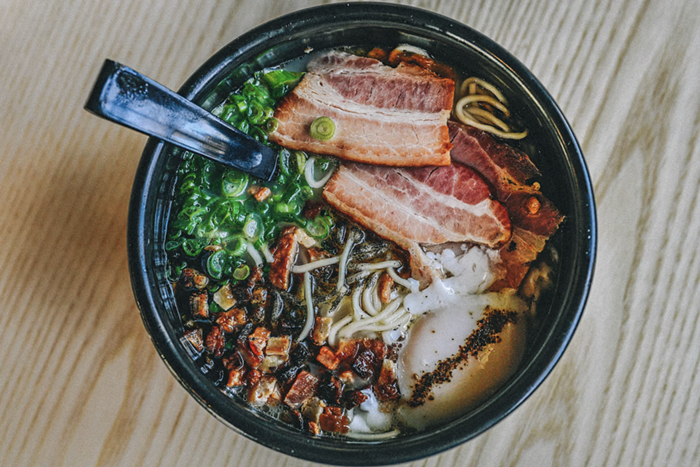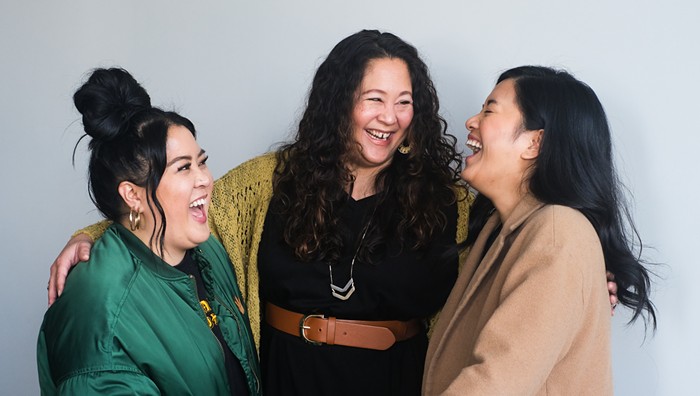
Hey all you devout Catholics eschewing chewing animal flesh on Fridays during Lent: Tomorrow, and only tomorrow, the rest of us heathens might join you.
Mayor Charlie Hales wants all Portlanders to go vegan for one day, and he’s proclaimed Friday “Meatout Day."
The mayor made his proclamation in support of nonprofit Farm Animal Rights Movement’s (FARM) 31st annual “Meatout” campaign. FARM and Hales want Portlanders to “explore a nutritious and wholesome diet of vegetables, fresh fruits, and whole grains” for at least this Friday.
It's an invitation that comes sprinkled with hyperbole.
FARM claims that “if the population of Portland committed to going meatless for one full day … it would spare the lives of more than 300,000 animals, preserve more than 90 million square feet of rainforest and save more than 2.2 (billion) gallons of water.”
But Peter Spendelow, who has a doctorate degree in zoology and is the president of nonprofit Northwest VEG, says those numbers are kind of misleading.
“I’d say, as far as farmed animals go, that you’re not saving their lives—I mean, it’s not like somehow they’re just going to hop the fence into an animal sanctuary,” Spendelow says. “But you’re definitely saving animals from being born into the kind of crummy, extremely short and very harsh, lives they live.”
Aaron Silverman, owner of Portland’s Tails and Trotters – a signature pork producer specializing in prosciutto – says he’s not going to participate in “Meatout Day” because he’s required to sample all his own wares (poor guy).
Silverman (he jokes he's a Jewish guy who owns a pork shop) lets his pigs run free and eat hazelnuts before they’re chopped up into tasty pork treats.
“I think everybody should think more about where all their food comes from, not just their meat,” Silverman says. “If everybody in Portland participated, it would definitely affect my business, but if the proclamation pushes people to think about their food, then I think it’s great.”
What isn’t so great about the meat production industry is its secondary effects on the environment. If picturing chickens stacked atop one another in tiny cages and imagining veal calves trapped in pens too small to turn around in doesn’t inspire you to get your meat out, then Spendelow suggests thinking about this: only one calorie is produced for every 10 to 15 calories of mass-produced feed – usually corn, soy or other grains – each animal consumes.
“Producing feed for animals is taking a lot of food, much of which could be eaten by humans, and feeding it to animals that are just going to become food,” Spendelow says. “We could be using that land to grow other crops.”
Spendelow points to corn and soy, both major crops produced in the U.S., as crops that are fed to livestock that could be fed to humans.
“Right now, 30 percent of the entire area of surface land that’s under agricultural cultivation is being used to produce feed for animals,” he says. “That’s like taking one-third of our food and throwing it down the drain.”
It doesn't have to be this way. The hazelnuts Silverman's pigs nosh—a whopping 90 tons annually—are waste products that would have been shipped to China, he says.
“They’re wormy, or they have holes in them,” he says. “They’re the wrong size, the wrong shape, or the wrong color.”
People are picky about their nuts, but pigs aren’t, Silverman says.
“We don’t feed our pigs soy or corn,” he says. “We fatten our pigs on feed-grade hazelnuts that people won’t eat anyway.”
Weirdly, consumers' choosiness over hazelnuts rarely extends to the meat aisle, Silver man says. People often opt to save a few dollars on the purchase price by forgoing organic or sustainably-raised products in favor of meats pumped full of hormones and antibiotics.
“Yes, our pigs are raised happy and healthy, but food production is a messy business,” he said. “People need to put more emphasis on the source and quality of their food, but I think it’s unrealistic to think everyone is going to stop eating meat.”
Turns out, Spendelow agrees.
“Obviously I’d prefer everyone (stop eating meat for) more than one day,” he said. “But food is a very sensitive issue to talk about. No one wants to be told what they can and can’t eat.”
Anyway: Don’t eat meat tomorrow, OK?


















